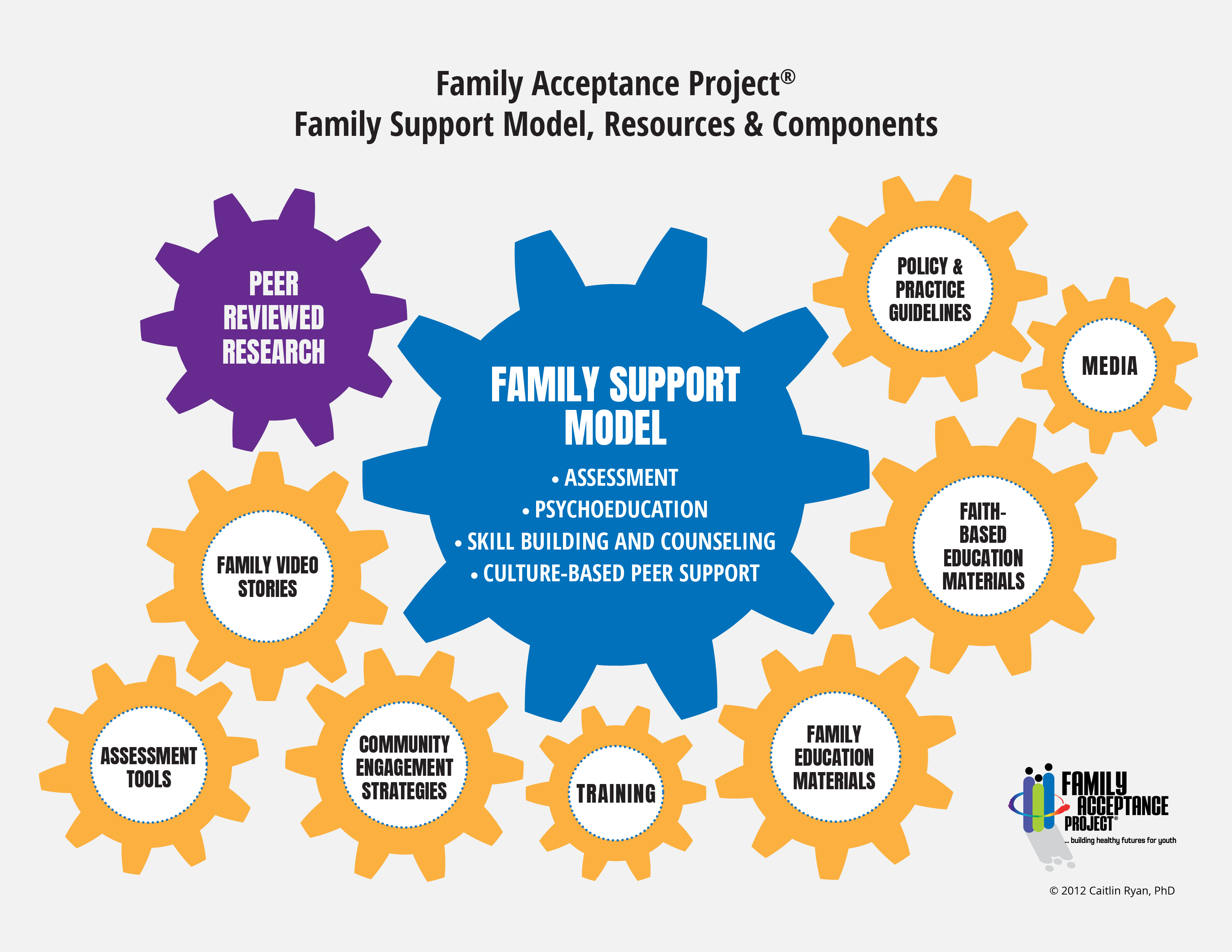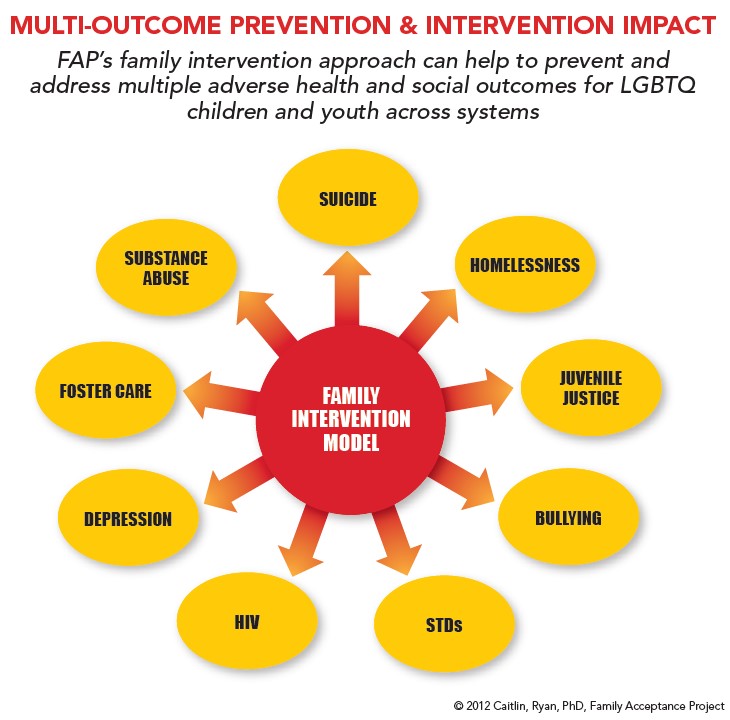The Family Acceptance Project’s® (FAP) research and implementation team conducted the first research on LGBTQ youth and families and developed the first evidence-based family support model to help diverse families and caregivers learn to support their LGBTQ children. FAP’s foundational research and family support work with racially, culturally and religiously diverse families has changed how families nurture and care for their LGBTQ children and how services are provided across systems of care.
Families Were Excluded From Services & Care
When FAP started this work, families were seen as unwilling and incapable of supporting their LGBTQ children. LGBTQ youth were served alone like adults or through peer support both in mainstream and LGBTQ services, without an understanding of the importance of engaging and working with their families to reduce risk and promote well-being. Providers had little guidance on how to engage and work with diverse parents, families and caregivers with LGBTQ children, and families had little information on how to support their LGBTQ children. When family conflict erupted, LGBTQ youth were typically removed from their homes and were placed in the child welfare system which separated them from their families. This contributed to multiple health and social problems and impaired life chances.
FAP’s research on the impact of family rejecting and accepting behaviors on risk and well-being for LGBTQ youth and FAP’s family support framework to help diverse families learn to support their LGBTQ children showed for the first time that families could learn to support their LGBTQ children, even when they believe that being gay or transgender is wrong.

FAP’s Family Support Model
FAP developed an evidence-based Family Support Model with funding from the Robert Wood Johnson Foundation that could be implemented across systems of care - in public education, prevention, early intervention. crisis intervention and postvention, including after LGBTQ children and youth were removed or ejected from their homes. FAP’s family support approach is flexible and can be applied clinically in mental health settings or partially using FAP strategies and multilingual resources to engage families to decrease rejection and increase support in a wide range of programs and services in schools, foster care, juvenile justice and homeless programs, in primary care and hospital-based care, in community-based organizations, pastoral care and ministries and by families themselves.
Integrating FAP Info TF-CBT
FAP’s family support model has been integrated into Trauma-Focused Cognitive Behavioral Therapy (TF-CBT) and this integrated model is being implemented in behavioral health, clinical and community programs to promote recovery for LGBTQ children and youth who have experienced trauma. FAP’s family support model was developed in a participatory framework with LGBTQ youth and families and has been applied in behavioral health, out-of-home care, in community mental health services and with affirming and conservative faith communities. FAP collaborates with health, mental health and social service agencies to integrate FAP’s family support and counseling framework into prevention and intervention services across systems of care.
Applying FAP On-Site and Online
FAP is applying its family support and counseling framework with individual families and in group formats. This includes providing guidance and support for parents and caregivers of LGBTQ children and youth using a bilingual group format online; implementing FAP’s Family Support Model in a group psychoeducation program for LGBTQ youth and racially diverse parents and caregivers who are struggling with their child’s LGBTQ identity to reduce health risks, increase connectedness and promote well-being; assisting a rural family services agency in Appalachia to provide family support services for LGBTQ children and youth; helping to implement FAP in a suicide prevention center; and applying FAP’s Family Support Model with Two Spirit & LGBTQ youth and their families on a large tribal reservation in the Northern Great Plains.
